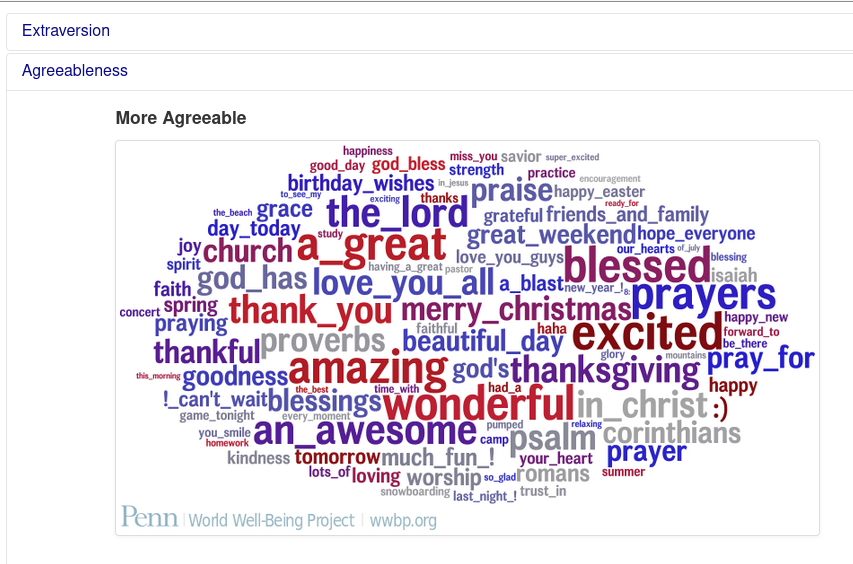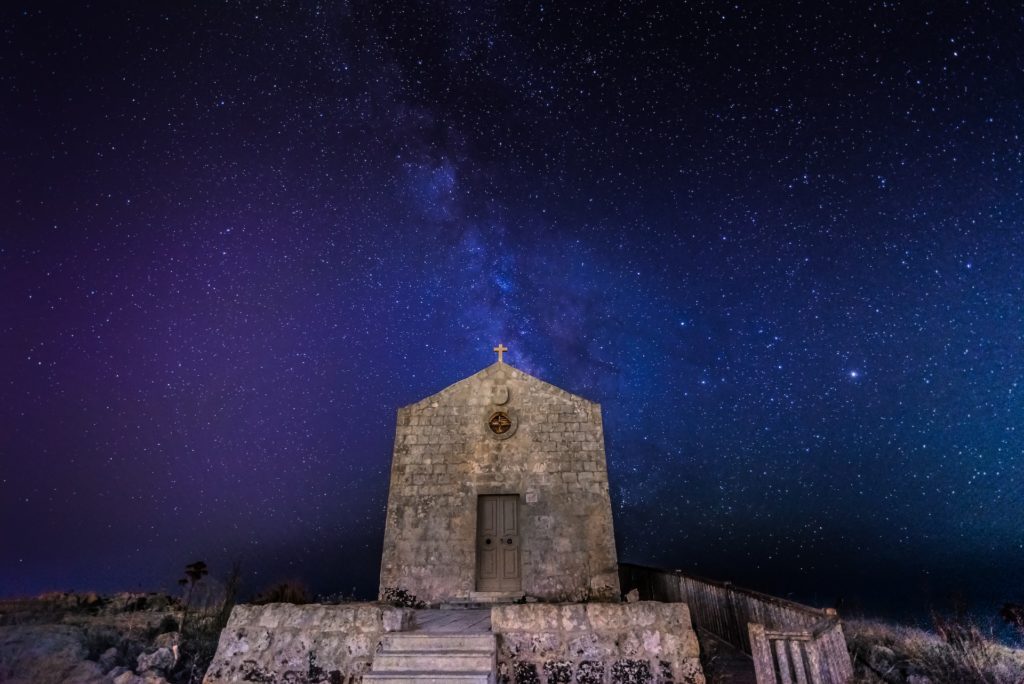When I was in eighth grade, I refused to be confirmed as a member of the United Methodist Church.
My mom made me attend the confirmation class despite my protests; she was not thrilled with my decision at the end. It’d be fair to ask whether my choice was just an adolescent power trip. It was, after all, one of the first times that my assent was asked at all. But confirmation means becoming an adult in the eyes of the church, so they required confirmands to affirm that they wanted to go through with it.
And I had a few concerns. The first was straightforward and I readily articulated it at the time: I wasn’t sure whether I believed in God.
But there was something else bothering me, even if I didn’t quite articulate it clearly at the time. Back then, I put it like this: “These kids think Jesus wore Abercrombie.” Deep down, though I’m a questioner and not temperamentally inclined to faith, what really bothered me was that no one really seemed to care either way.
As the class neared completion, each of us had to speak to the pastor and explain why we wanted to be confirmed. Far from wanting to boldly defy the authorities, I was nervous about telling the head of the church that I doubted the existence of the Entity to which he had dedicated his life.
“I’m not saying there is no God, but…well, I’m just not sure,” I remember spluttering to him. “And I don’t think I should say I believe in something if I’m not sure I do.” And then, in firmer words I remember even more clearly all these years later: “I just feel like this should matter,” I told him.
I’ll never forget his response.
“You’re the only one in this class who’s taking this seriously,” he told me. “My door will always be open to you. Come back any time you want to chat.”
*
The pastor’s words that day ensured that I would be, if not religious myself, then a friend of religion. Someone out there respected my search for Truth! That really meant something to me, especially at age thirteen. Being forced to go to church youth group activities had otherwise contributed my self-perception as an outsider, so it helped that someone in the church noted and respected what I thought.
Fast forward twenty-seven years. Today, because I’m seeking wisdom and belonging, I’ve been contemplating joining a church. The problem is that I’m still not sure about this God fellow.
If I may put that question aside for a paragraph, here’s the draw of church: the questions that interest me are relational questions. We’re not just individuals bouncing off of each other; we connect and converse and impact each other with our actions and even our thoughts. If I’m going to spend all this time talking about identifying and following the “higher path,” I’d like to find a place—ideally a physically co-located one—where other people are talking about it. It seems to me that churches are where people tend to go for this sort of thing. Sure, the one church I was dragged to as a kid didn’t live up to this, but that was just one church, right? There are plenty of others. Plus, maybe things are different when you’re not stuck with a bunch of thirteen-year-olds. Or when you’re not a thirteen-year-old.
I’ve also gotten really into the work of G.K. Chesterton lately, and he’s only the latest of several writers who have inspired me who are religious. If Chesterton were around today, he’d go to church, right? Along with Simone Weil and C.S. Lewis and J.R.R. Tolkien and Dag Hammerskjold, who’s also been studied as an exemplar of positive disintegration? Not all my favorite thinkers are religious, certainly. But I can’t deny that the threads about virtue and character that interest me do often pass through religious spaces.
Not all my favorite thinkers are religious, certainly. But I can’t deny that the threads about virtue and character that interest me do often pass through religious spaces.
Unfortunately, the question of God’s existence seems likely to rear its head sooner or later. For Christians, though I gather there’s some difference in the culture here between Catholics, mainline Protestants, and Evangelicals, my understanding is that belief in Jesus Christ and His resurrection is kinda important. Granted, I don’t fear damnation the way my dad did as a child, raised by Lutherans who seared visions of hellfire into his mind. (As an adult, he enjoyed The God Delusion by Richard Dawkins and had to be dragged to church by my mom just as much as my sister and I did.) I know that kind of religious abuse is why some people have rejected church; I, however, am not so traumatized that I couldn’t just join one and nod along. It’s just that that seems likely to get in the way if you’re looking for belonging.
As for wisdom, the question of what is real matters. It’s like a loose thread you think you can safely ignore, only to have it suddenly unravel so fast that your pants fall down, and maybe while you’re out in public.
There’s something else striking here, though. While I live in the highly secular world of over-educated DC professionals, a fair number of my best friends are religious. When I got married, my bridesmaids were my sister; my college friend who has been the Sam to my Frodo when I’ve had burdens to carry; and my sister’s best childhood friend who was like my other little sister. While my sister isn’t religious, the others are practicing Christians. One has a doctorate of theology; the other has a “Love Wins” bumper sticker on her car. And hey, our ring bearer’s mom is also a college friend who has a PhD in math and a strong Christian faith; she married an atheist who respects her faith without sharing it.
So now I’m asking myself, Why are so many of my favorite people religious?
*
On this note, I recently stumbled across something fascinating. These word clouds of personality types were produced by the University of Pennsylvania’s World Well-Being Project based on what people posted on Facebook. The graphics show the words that most distinguish the extreme ends of each Big Five personality trait—agreeableness, extraversion, conscientiousness, neuroticism, and openness to experience.
Here’s the word cloud for high agreeableness:

And here’s how the site describes this trait:
High agreeableness is characterized by traits such as being warm, kind, cooperative, unselfish, trustful, and generous. The word cloud reflects religious words (e.g., prayer, church, god_bless), well-being (e.g., excited, wonderful, amazing, blessed), and positive social relationships (e.g., love_you_all, thank_you, friends_and_families).
When I saw the clouds for high agreeableness and high conscientiousness (check the latter out at the site if you like), I had two thoughts: Who wouldn’t want to be in a group described this way? and They sure talk a lot about church.
Granted, the Big Five test is a blunt instrument. It deals in generalizations, and I can think of plenty of exceptions to whatever conclusion we might draw from it. Take my husband’s family: they treat swearing as expression of affection and closeness. It just takes some code-switching to fit in with their (actually quite warm) dynamic. When in Rome and all that.
When profane words appear in these word clouds, however, I doubt they’re expressions of affection. With a reminder that this is the extreme of the spectrum, here’s how the World Well-Being Project defines low agreeableness:
Low agreeableness is characterized by traits such as being cold, unkind, uncooperative, selfish, distrustful, stingy, and hostile. In the image, swear words are quite prevalent. The words surrounding these words reflect aggressiveness, substance abuse, and other words reflecting a hostile approach to the world (e.g., kill, punch, knife, drunk, i_hate, racist, idiots).
So when I asked, “Who wouldn’t want to be in a group described [the way highly agreeable people are described],” well, I can provide my own answer: I know plenty of people who would probably want to strangle them. (Probably know more of them than is optimal for my own temperament.) You can go to the site to look at the low agreeableness word cloud, but be advised that it’s not safe for work.
And you know, I’m even a little reluctant to post this. I mean, maybe I’ll upset the disagreeable people! Gosh, I wouldn’t want to offend people who are bitter and angry all the time!
Maybe that’s part of my problem.
*
As easy as my question is to answer on the surface, it leads us to another one: where, in a crowd dominated by agreeable people, does questioning fit in?
Whenever I take a Big Five test, I always score highly on agreeableness, but I’m undeniably a questioner. Sometimes I wonder if I built this whole site as a way to grapple with this very problem; it sure seems like a tension in my personality that could use some positive disintegration, if only I can be sure which is the higher path. I mean, yes, I have people-pleasing tendencies, but even when I’ve sanded those down, I haven’t stopped wanting to uplift my friends, to listen to them and cooperate and be actually kind (as opposed to #BeKind which is, in my experience, something else). I want to be constructively agreeable, being warm and generous because I belong to a community of people with whom I have relationships, not because I’m afraid some acquaintance will blow up at me if I don’t treat her with kid gloves.
I want to be constructively agreeable, being warm and generous because I belong to a community of people with whom I have relationships, not because I’m afraid some acquaintance will blow up at me if I don’t treat her with kid gloves.
I also really want to explore ideas. I want to have friendly conversations in which we present opposing views so we can, agreeably and in concert, figure out the higher path. This does seem to be compatible with high agreeableness, as my interview with Andrea Lynn Lewis (who is, incidentally, a Christian) would attest, even though it takes some practice to get the balance right.
It’s true that a person could type yay_god and love_you_all into her Facebook status and still be explosively disagreeable. On balance, though, this was why I figured the path to what I was seeking might at least pass through a church. I want to explore what it is to be good, and to belong to a community that strives for that.
And so I felt hopeful, and I said to Max, “A friend from my co-working group invited me to go to church with her, so I thought I’d check it out.” This friend was one of the few regulars at the group whom I’d clicked with in particular—a kind, thoughtful, and interesting woman.
“It’s not going to work,” Max warned me. “You’re going to be disappointed.”
*
My friend attends a Baptist church here in the District of Columbia. I would not otherwise have picked out the Baptists. But what can I say? Speaking of personality traits, I’m also high in openness, and I was curious.
And, dear readers, I have to tell you: those word clouds were spot on.
I already knew that to some degree as I’d met people from the church before. My friend had once invited me on a hiking trip they organized, and everyone there was really, really friendly. Surrounded as I am by intellectual types who are absorbed in their ideas and their projects (and, yes, being such a person myself), that group really filled an unmet need. They smiled as they expressed sincere interest in each other in a way I’ve rarely seen at a DC social event. No one tried to convert me, though they did invite me to come to other stuff with the church.
That hike was almost a year and a half ago, so it was a shock when people whose faces I hardly remembered came up to me and said with a big smile, “Hi, Jessie! Great to see you here!”
Not only were they friendly, and conscientious, and welcoming; they were sincere in these things, as well as in their faith. You could tell from their body language that it was authentic. In my usual circles, it’s common to be nervous and jittery; at this church, people’s nervous systems seemed so well regulated that I felt soothed by their very presence.
Is that the Holy Spirit? Is the grace of God just a well-regulated nervous system?

Whatever you make of spiritual seeking, here’s an observation that’s verifiable: by being around regulated people, we can become regulated ourselves. When we’re around neurotic people, their fear and sadness radiates out toward us and makes us nervous, too; but calm, confidence, and faith—in whatever—can pass from person to person via physical cues just as readily.
The service I attended was like this. I was almost late to another event because I left only one hour for it, but it took two. The first was dedicated to singing. I’ve done enough karaoke with my friends living in Japan to know how singing together helps regulate our nervous systems and helps us feel like a group. The congregation also sang boldly, not like the wimpy voices my Catholic friend has complained about, being grateful when I showed up with my Methodist-reared voice. (One thing I did always like at church were the songs.)
Is that the Holy Spirit? Is the grace of God just a well-regulated nervous system?
The sermon came in the second hour. Surely, as much as I liked the singing, this was where the question of whether I’d find what I wanted would be answered.
The pastor struck me as a decent and likable man. Notably, he was moved to tears when talking about a children’s book about Christianity. (Did this, I wondered, count as being “emotionally overexcitable?”) His advice to us seemed solid enough, though I could see that I’d find some things to quibble over; but that alone wasn’t a deal breaker, if I could be permitted space for the quibbling. I jotted some verses down in the bulletin, where there was a space set aside for notes: Teach us to number our days, that we may gain a heart of wisdom. (Psalms 90:12) If there is a God, maybe He led the pastor to include this line the day I was there: “Is it OK to question God? Jesus’s last words were a question.”
But I suspect I’m reaching there. After all, nothing about this changed the fact that I am not, as I keep saying, temperamentally inclined to it. If there is a God, then He made me this way, and I can only hope that—if the Baptists are correct—He has a plan for me just as He made me.
*
Then the pastor brought up Satan.
When I asked her later, my friend told me that she believes Satan is real. Demons are out there and they can influence you.
On one hand, when put in this language, my cultural background has me prepared to reject the answer. On the other hand, some of the questions that interest me have to do with the nature of evil. Surely there’s something worthy of that name in our world, whatever its metaphysical nature, is there not?
As another sign from God or of how creepily good the algorithms are getting, an article by Andrew Klavan (whom I’d never heard of before) appeared on my Twitter feed as I was drafting this piece. Klavan’s article addressed this point in a way I found thought-provoking:
I know that belief in the devil and demons is not popular among the intelligentsia. Seriously, it is so out of keeping with the materialist narrative of our age as to sound philosophically disqualifying to the sophisticated modern ear. But many truths do sound that way, you know. That’s the whole point.
All I’ll say is this: if there is no devil, if there are no demons, if there are no conscious powers of evil seeking entry to our souls through our broken places, the world behaves very strangely—very strangely and precisely—as if there are.
That brings me to another encounter that has left a mark on how I think about this. Some time ago, in my wanderings through the interwebs talking to people about positive disintegration and our culture, I met someone who described himself as a Satanist.
Wait—what?
Did he really believe that Satan was real? I mean, if I can get over the whole faith thing and believe in God, then I’m gonna wanna be on Team God.
But I can imagine some snarky intellectual who, perhaps smiling condescendingly, will point out something: God demands obedience. And you’re a questioner. Whatcha gonna do now, Ms. Goodie Two-Shoes? You gonna join the cool kids and eat the fruit or not? Come join Team Lucifer and be a light bearer!
And then another thought strikes me: Who would have the hubris to think that he, on his own, without anyone keeping him in check, could claim to bear the light?
I never asked the Satanist what his creed meant to him, and he eventually parted ways with me. It turned out that he did not like the rules I set to help a group I led cohere. On his way out the door, he called me authoritarian.
I do need to set boundaries for my own home and for the community that I cultivate and lead. If I fail to do so, the culture will collapse. It will be taken over by those who are the least conscientious, the least agreeable, the least relational, the least regulated.
I’d tell you that I oppose authoritarianism, so I thought a lot about this feedback on my leadership. I came to this conclusion: I can’t (and shouldn’t seek to) coerce him into abiding by the rules I set, but I do need to set boundaries for my own home and for the community that I cultivate and lead. If I fail to do so, the culture will collapse. It will be taken over by those who are the least conscientious, the least agreeable, the least relational, the least regulated. (This, at its core, is the problem with moderation in any online forum.)
Still, it was worth charitably considering what he was getting at. It says something relevant to the search for belonging when what you want most is to be able to ask questions.
It’s probably not a coincidence that another word we could use for setting rules is regulating. Fight, flight, flee, or fawn: these words describing the response patterns of a nervous system activated by a threat too often also describe the interactions between questioner and questioned. Not always, of course, not by a long shot. I have (thank God for this) had some relationships that come close to the ideal that I seek—that of two people mutually pursuing Truth together. Neither party’s belonging is threatened by these questions. Each is confident in her ability to participate; each is prepared both to be wrong and to stand up when he’s right without losing respect for his partner in pursuit of Truth.
Such people, I’ve observed, tend to behave toward each other in especially emotionally regulated ways. Above all, they’re secure enough in themselves to forgive others when, as still occasionally happens, they feel offended—activated—by something they say.
The dysregulated questioner lacks this sense of security. He cannot answer this core question to his satisfaction: Is it okay for me to be myself, exactly as I am? Unable to answer that question in the affirmative, let alone to answer it in the negative and make peace with that fact, he will struggle to engage in that mutual pursuit of Truth.
The dysregulated questioner lacks this sense of security. He cannot answer this core question to his satisfaction: Is it okay for me to be myself, exactly as I am?
Certainly, religion in general and Christianity in particular have a mixed record when it comes to helping people confront the answer to this question. Just think back to my dad being taught about hellfire as a child. But I think some of what helps me feel well-regulated around my sincerely faithful friends is that, when you embrace a faith that teaches that all of us are imperfect, you recognize that it’s okay to be so. A secular person can agree that all humans have a need for grace, and the wisest, most well-regulated people surely embrace of the golden mean between striving to improve and the reality that we’ll always have flaws. It’s because of this universal human experience that we need rules and boundaries for the relational space. Without such rules, we’ll be dominated by the stronger person—or by the one with the more activated nervous system.
I told my friend that I was still not sure whether I believed (and we agreed that this matters, because God knows what I think, even if I’m faking it until I make it), but that I liked her church because everyone there was so kind.
“God does reach us through other people,” she replied.
*
It’s like in the great stories, Mr. Frodo, the ones that really mattered. Full of darkness and danger they were. . . . Those were the stories that stayed with you, that meant something, even if you were too small to understand why. But I think, Mr. Frodo, I do understand. I know now. . . . Folk in those stories had lots of chances of turning back, only they didn’t. They kept going, because they were holding on to something. That there is some good in this world, and it’s worth fighting for.
—J.R.R. Tolkien (via Samwise Gamgee), The Two Towers
On Christmas Eve, stranded in DC by a snowstorm and unable to attend the Methodist church with my mom to sing Joy to the World and Silent Night as I love to do every year, Max and I went to a local Catholic Church. I must confess I was underwhelmed by the sermon. I would have settled for some joy from the priest (Christ is born, man! Come on!) but also notably absent was food for thought.
When I commented on my disappointment, Max said to me, “You’re not looking for what G.K. Chesterton and C.S. Lewis talked about; you’re looking for G.K. Chesterton and C.S. Lewis.”
Is he right? I’m not asking my conversation partners to be as witty, as gifted, as Chesterton and Lewis! It’s just that few seem to be into talking about moral questions these days. It’s unfashionable. Our culture’s libertarian streak frowns on any restrictions on our behavior at all; its postmodern clique declares that everything is subjective and relative. When I look at what those worldviews are doing to society, I don’t see health. I don’t see elevation. I don’t see a path upward by that route.
As I engage with all these ideas—the religious, the moral, the postmodern—something has emerged at the top of my hierarchy of values: reality. Reality exists. I am willing die, as we now say, on this hill. There is capital-T Truth and it is knowable, even if churches are some of the prime culprits in making people doubt that.
But in asserting that what I have faith in is the existence of reality, I am not claiming that I know much about what is real.
It is not lost on me that Chesterton and Lewis both originally doubted the faiths they would later come to embrace. Still, if my path is leading that way, I haven’t arrived yet. Are these people who impress me with their wisdom simply imagining God? Because their wisdom, as far as I can tell, holds up in reality. So either God is real, or their wisdom is not dependent on God, and therefore secular people have a place in the conversation.
A few years ago, a metaphor sprang to my mind. The square root of X is the number that you multiply by itself to get X. And when you multiply a number by itself, whether it’s positive or negative, the product will always be positive. That means that, because a negative times a negative is a positive, an integer will always have two square roots: a negative and a positive one. There is, however, no number you can multiply by itself to get a negative product.
So what’s the square root of a negative number? Mathematicians say it’s an imaginary number. It doesn’t exist in the set of what they call real numbers. But it does, in some sense, exist, and sometimes it’s the correct answer to a math problem.
Mathematicians say it’s an imaginary number. It doesn’t exist in the set of what they call real numbers. But it does, in some sense, exist, and sometimes it’s the correct answer to a math problem.
When I first drafted this piece, I didn’t know how to end it. Stuck and frustrated, I sent the unfinished draft with all of the above to a Third Factor reader who’s become a friend. I know she, too, is an incorrigible questioner; what I didn’t know is that she thinks of herself as both Catholic and agnostic.
“There is a truth in the mythology. There is truth in fiction. There is truth in beauty. That’s why it works for me,” she told me.

A few days later, a friend—the one who is Sam to my Frodo and who has a doctorate of theology—came to DC for a meeting about a Catholic organization to which she belongs, and after that she came to my house to hang out for a few days. So I asked her what she would say about this quest. What unfolded afterward was a whole evening of conversation about how she was raised Catholic but didn’t truly have what she called a “conversion experience” until she studied the Bible through an academic lens in college. She talked about how she rejects the “butts in seats” approach to getting people back into church; she’s for something that sounds less like telling people what’s what and more like listening to what they have to say—within reason, of course. It remains a conversation, and the Church is allowed to answer back. Its leaders are allowed to set boundaries to create a culture.
“If you come to me through the church, it’s my job as your sister to listen, and walk with you, and maybe—once we have a relationship—identify where you need some help and offer it,” she said.
That sounds an awful lot like any healthy relationship. One in which we share wisdom. One in which we help each other build the skills to regulate our own nervous systems as much as possible, without domination of one party by the other, but are there to support each other when we come up against our individual human limits.
Healthy, questioning, elevating relationships were out there all along. It was just that, because I hadn’t found them the first few places I looked, I had given up looking. I lost faith in something indisputably real: in relationships, and in the goodness and wisdom to be found in mature, healthy people.
I’m still considering joining a church, if I find the right one. But I can do something else, too: I can go out into the world with more confidence than ever, because I have found others who affirm goodness, and beauty, and relationship, and reality, and Truth.
Ask, and it shall be given you; seek, and ye shall find; knock, and it shall be opened unto you. For every one that asketh receiveth; and he that seeketh findeth; and to him that knocketh it shall be opened.
Matthew 7:7-8
Header image courtesy Cristina Conti / Shutterstock




